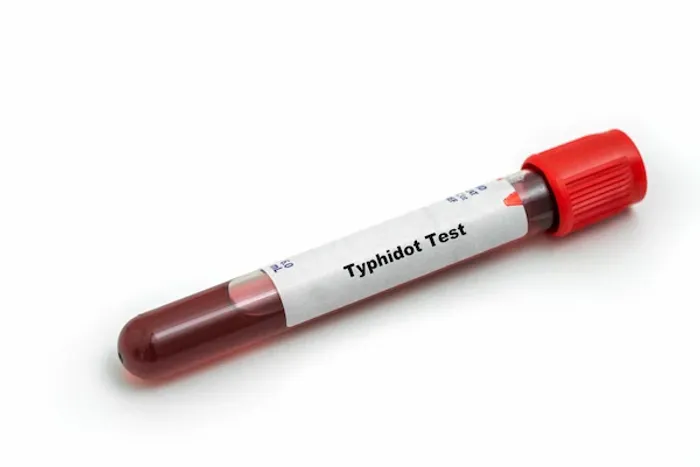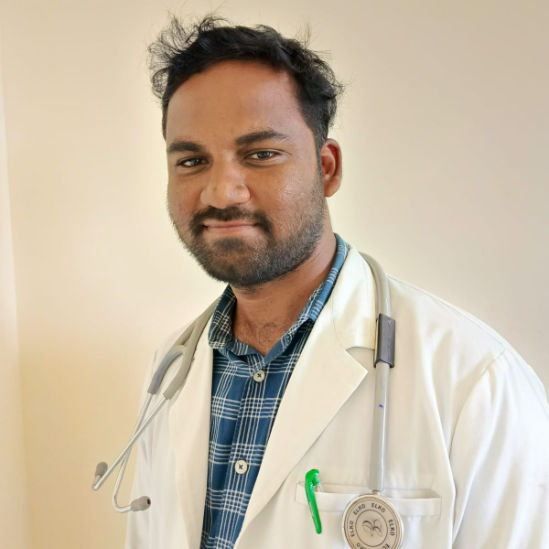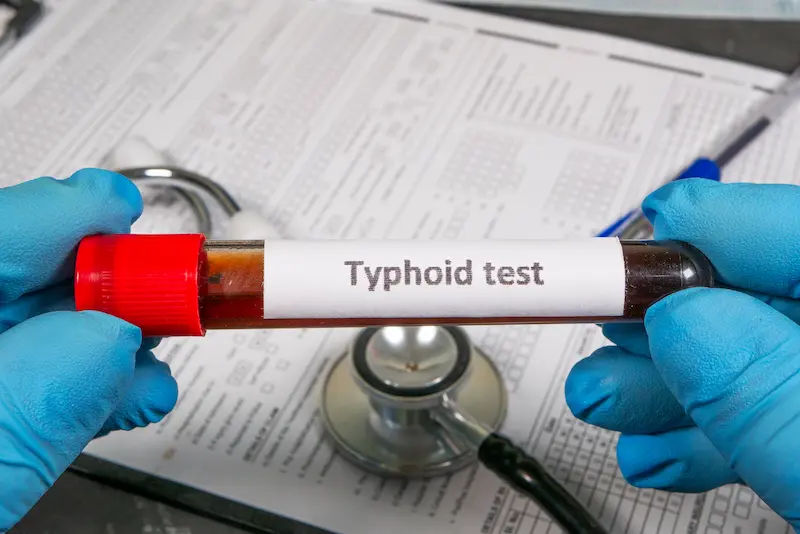Typhidot Test Overview and Procedures
Learn what the Typhidot test is, how it's performed, and when it’s recommended. A quick guide to understanding this diagnostic tool for typhoid fever.

Written by Dr. Dhankecha Mayank Dineshbhai
Reviewed by Dr. Md Yusuf Shareef MBBS
Last updated on 14th Aug, 2025

Typhoid fever is a serious bacterial infection caused by Salmonella typhi. It spreads through contaminated food and water and can lead to high fever, stomach pain, and weakness if left untreated. The Typhidot test is a quick and reliable blood test that helps diagnose typhoid fever early.
If you or a loved one is experiencing symptoms of typhoid, understanding this test can help you take the right steps toward recovery.
What is the Typhidot Test?
The Typhidot test is a blood test that detects antibodies (IgM and IgG) produced by your immune system in response to Salmonella typhi infection. Unlike traditional tests like the Widal test, which can take days, the Typhidot test provides results within 2-3 hours, making it a faster and more efficient option for diagnosis.
Why is the Typhidot Test Done?
Doctors recommend this test if you have symptoms of typhoid fever, such as:
- High fever (often 103°F or higher)
- Headache and body aches
- Stomach pain and loss of appetite
- Diarrhoea or constipation
- Weakness and fatigue
Early diagnosis helps in starting treatment quickly, preventing complications like intestinal bleeding or severe dehydration.
Get Typhoid Test Here
How is the Typhidot Test Performed?
The test is simple and involves a small blood sample. Here’s what to expect:
Step 1: Preparation
- No fasting is needed; you can eat and drink normally before the test.
- Inform your doctor if you’re on any medications.
Step 2: Blood Sample Collection
- A healthcare professional will clean your arm and insert a small needle to draw blood.
- The process takes just a few minutes and may cause slight discomfort.
Step 3: Lab Analysis
- Your blood sample is tested for IgM (early infection) and IgG (past infection or immunity) antibodies.
- Results are usually ready within 2-3 hours.
Consult Top Specialists
Understanding Typhidot Test Results
The test detects two types of antibodies:
1. IgM Antibodies (Positive/Negative)
- Positive IgM: Means you have an active typhoid infection.
- Negative IgM: Likely no current infection.
2. IgG Antibodies (Positive/Negative)
- Positive IgG: Indicates a past infection or vaccination.
- Negative IgG: No previous exposure to typhoid.
Possible Result Combinations:
Your doctor will explain the results and suggest treatment if needed.
What If You Test Positive for Typhoid?
If your Typhidot test confirms typhoid fever, your doctor will prescribe antibiotics to fight the infection. Along with medication, follow these tips for a faster recovery:
1. Stay Hydrated
Drink plenty of water, coconut water, ORS, or herbal teas to prevent dehydration from fever and diarrhoea.
2. Eat Light, Nutritious Foods
- Opt for boiled vegetables, khichdi, bananas, yogurt, and soups.
- Avoid spicy, oily, or hard-to-digest foods.
3. Get Enough Rest
- Avoid physical strain; rest helps your body recover faster.
4. Maintain Hygiene
Wash hands frequently with soap.
Drink boiled or purified water to prevent reinfection.
When to See a Doctor?
If you experience:
- Persistent high fever (more than 3 days)
- Severe stomach pain or vomiting
- Blood in stools
- Extreme weakness
Consult a doctor immediately to avoid complications.
How to Book a Typhidot Test?
If you suspect typhoid, getting tested early is crucial. You can book a Typhidot test easily through Apollo 24|7:
1. Online Booking: Visit Apollo 24|7 and schedule a test at your convenience.
2. Home Sample Collection: Opt for a hassle-free home blood draw.
3. Quick Results: Receive your report within hours.
Early diagnosis means faster treatment and recovery!
Conclusion
The Typhidot test is a fast, accurate way to detect typhoid fever. If you have symptoms, don’t ignore them—get tested and start treatment early. Follow your doctor’s advice, maintain good hygiene, and take care of your diet to recover smoothly.
Consult Top Specialists
Consult Top Specialists

Dr. J T Hema Pratima
General Practitioner
9 Years • MBBS, Fellowship in Diabetes Mellitus
Chennai
Apollo 24|7 Clinic - Tamilnadu, Chennai
(350+ Patients)

Dr. Siri Nallapu
General Practitioner
5 Years • MBBS
Hyderabad
Apollo 24|7 Clinic, Hyderabad

Dr D M Karthik
General Practitioner
4 Years • MBBS, Fellowship in Diabetes Mellitus, Advance certificate in Diabetes Mellitus, Derma Nutrition Certification
Visakhapatnam
Apollo 24|7 Clinic - Andhra Pradesh, Visakhapatnam

Dr. Shaik Abdul Kalam
General Practitioner
3 Years • MD (Physician)
Visakhapatnam
Apollo 24|7 Clinic - Andhra Pradesh, Visakhapatnam
(175+ Patients)

Dr. M L Ezhilarasan
General Practitioner
6 Years • MBBS
Visakhapatnam
Apollo 24|7 Clinic - Andhra Pradesh, Visakhapatnam
Consult Top Specialists

Dr. J T Hema Pratima
General Practitioner
9 Years • MBBS, Fellowship in Diabetes Mellitus
Chennai
Apollo 24|7 Clinic - Tamilnadu, Chennai
(350+ Patients)

Dr. Siri Nallapu
General Practitioner
5 Years • MBBS
Hyderabad
Apollo 24|7 Clinic, Hyderabad

Dr D M Karthik
General Practitioner
4 Years • MBBS, Fellowship in Diabetes Mellitus, Advance certificate in Diabetes Mellitus, Derma Nutrition Certification
Visakhapatnam
Apollo 24|7 Clinic - Andhra Pradesh, Visakhapatnam

Dr. Shaik Abdul Kalam
General Practitioner
3 Years • MD (Physician)
Visakhapatnam
Apollo 24|7 Clinic - Andhra Pradesh, Visakhapatnam
(175+ Patients)

Dr. M L Ezhilarasan
General Practitioner
6 Years • MBBS
Visakhapatnam
Apollo 24|7 Clinic - Andhra Pradesh, Visakhapatnam

